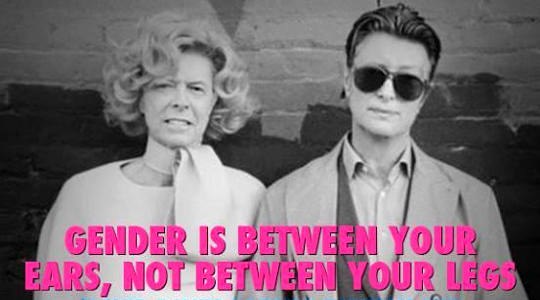 Matchmaking and dating services used to advertise in small rectangles on tube carriages, next to the vitamin drinks and food delivery services, and in smaller rectangles still on the classified pages of newspapers and magazines.
Matchmaking and dating services used to advertise in small rectangles on tube carriages, next to the vitamin drinks and food delivery services, and in smaller rectangles still on the classified pages of newspapers and magazines.
 Everyone loves a good story, but can a good story lead to love? Storytelling is a fundamental form of communication, and research has demonstrated the power of narratives to change minds and influence behavior.
Everyone loves a good story, but can a good story lead to love? Storytelling is a fundamental form of communication, and research has demonstrated the power of narratives to change minds and influence behavior.
 We’ve all felt it at some time in our lives. Poets write about it, singers sing about it – and a whole industry has grown up around finding it, expressing it and maintaining it. But what is love? Where does it reside? What triggers it? And what’s really going on in our minds and bodies when we fall “head over heels”?
We’ve all felt it at some time in our lives. Poets write about it, singers sing about it – and a whole industry has grown up around finding it, expressing it and maintaining it. But what is love? Where does it reside? What triggers it? And what’s really going on in our minds and bodies when we fall “head over heels”?
 “Nice guys finish last” is one of the most widely believed maxims of dating. Fleshed out, the idea goes something like this: heterosexual women might say they want nice characteristics in a partner, but in reality what they want is the challenge that comes with dating a “bad boy”.
“Nice guys finish last” is one of the most widely believed maxims of dating. Fleshed out, the idea goes something like this: heterosexual women might say they want nice characteristics in a partner, but in reality what they want is the challenge that comes with dating a “bad boy”.
 In the United States, the teen pregnancy rate is higher than in any other western industrialized country, according to the U.S. Centers for Disease Control and Prevention (CDC). At the same time, a growing number of American teens and young adults have been diagnosed with sexually transmitted diseases (STDs).
In the United States, the teen pregnancy rate is higher than in any other western industrialized country, according to the U.S. Centers for Disease Control and Prevention (CDC). At the same time, a growing number of American teens and young adults have been diagnosed with sexually transmitted diseases (STDs).
 Lots of women look forward to motherhood – getting to know a tiny baby, raising a growing child, developing a relationship with a maturing son or daughter. All over the world, people believe that parenting is the most rewarding part of life.
Lots of women look forward to motherhood – getting to know a tiny baby, raising a growing child, developing a relationship with a maturing son or daughter. All over the world, people believe that parenting is the most rewarding part of life.
 It is perhaps one of the most controversial debates in sexual function: is there or isn’t there a G-spot? And if there is, how do we find it?
It is perhaps one of the most controversial debates in sexual function: is there or isn’t there a G-spot? And if there is, how do we find it?
 "Masculine traits in humans are not the same as, say, in peacocks where the beautiful tail attracts a mate," says David Puts. "For example, beards make men more dominant looking, scarier, and seemingly more dangerous, but most women prefer clean-shaven men."
"Masculine traits in humans are not the same as, say, in peacocks where the beautiful tail attracts a mate," says David Puts. "For example, beards make men more dominant looking, scarier, and seemingly more dangerous, but most women prefer clean-shaven men."
 True or false: *Couples with great relationships don’t fight. * Most people expect too much from marriage. * All the good men/women are already taken. * Love can heal all wounds. * If my partner were more like me, we’d have a better relationship.
True or false: *Couples with great relationships don’t fight. * Most people expect too much from marriage. * All the good men/women are already taken. * Love can heal all wounds. * If my partner were more like me, we’d have a better relationship.
 "A lot of times, just by avoiding negative traits, people will probably be fairly well off—maybe even more well off—than if they were trying to optimize the best potential partner," says Gregory Webster.
"A lot of times, just by avoiding negative traits, people will probably be fairly well off—maybe even more well off—than if they were trying to optimize the best potential partner," says Gregory Webster.
 The difficult thing is how to measure it, because people will probably over-estimate. If you’re a non-scientist, you might have once asked yourself, propped against the bedhead after disappointingly quick intercourse, how long does sex “normally” last?
The difficult thing is how to measure it, because people will probably over-estimate. If you’re a non-scientist, you might have once asked yourself, propped against the bedhead after disappointingly quick intercourse, how long does sex “normally” last?
 Becoming vulnerable with a woman teaches you all about trust. I often hear, “I’ll be more vulnerable with her when I trust her more.” This attitude doesn’t work. Your vulnerability opens the door to trust, and trust opens the door to love.
Becoming vulnerable with a woman teaches you all about trust. I often hear, “I’ll be more vulnerable with her when I trust her more.” This attitude doesn’t work. Your vulnerability opens the door to trust, and trust opens the door to love.
 Some time ago, I found myself single again (shock, horror!) and decided to get back into the world of dating. One thing that struck me very early on in my forays was that everyone had an opinion about “what worked” in terms of dating.
Some time ago, I found myself single again (shock, horror!) and decided to get back into the world of dating. One thing that struck me very early on in my forays was that everyone had an opinion about “what worked” in terms of dating.
 For all that Miley Cyrus’s cropped hair and crotch-clutching and “I don’t relate to being boy or girl” have inspired articles about gender fluidity as the new “in” thing, it’s hard not to see Cyrus’s “trailblazing” as derivative of David Bowie – a true icon in so many ways, not least in his defiant smashing of gender norms.
For all that Miley Cyrus’s cropped hair and crotch-clutching and “I don’t relate to being boy or girl” have inspired articles about gender fluidity as the new “in” thing, it’s hard not to see Cyrus’s “trailblazing” as derivative of David Bowie – a true icon in so many ways, not least in his defiant smashing of gender norms.
 The reason why, in terms of evolution, organisms have sex may seem rather obvious – they do it to reproduce. Clearly, natural selection must favour individuals who can reproduce over those who can’t. But this is missing the point. For many species there is an alternative: asexual reproduction.
The reason why, in terms of evolution, organisms have sex may seem rather obvious – they do it to reproduce. Clearly, natural selection must favour individuals who can reproduce over those who can’t. But this is missing the point. For many species there is an alternative: asexual reproduction.
 Relationships are often interpreted as the outcome of an exchange of goods and services. Common knowledge says that the sexes want different things from a partner.
Relationships are often interpreted as the outcome of an exchange of goods and services. Common knowledge says that the sexes want different things from a partner.
 American classrooms do not talk frankly about teenage love or emotional intimacy. Last month, Tom Porton, an award-winning, veteran Bronx high school teacher, handed in his resignation after colliding with the school’s principal.
American classrooms do not talk frankly about teenage love or emotional intimacy. Last month, Tom Porton, an award-winning, veteran Bronx high school teacher, handed in his resignation after colliding with the school’s principal.
 Have you ever thought there was an uncanny family resemblance between your friend and her partner? Or wondered for a fleeting moment whether the pair walking down the road were husband and wife, or brother and sister? You might not be imagining things. Animals of many species “learn” what a suitable
Have you ever thought there was an uncanny family resemblance between your friend and her partner? Or wondered for a fleeting moment whether the pair walking down the road were husband and wife, or brother and sister? You might not be imagining things. Animals of many species “learn” what a suitable
 When it comes to love, cheating and divorce, matters are never just of the heart. In a bid to understand the love lives of humans, scientists have turned to the romantic relations of birds since the family life of many birds is reminiscent of those exhibited by humans.
When it comes to love, cheating and divorce, matters are never just of the heart. In a bid to understand the love lives of humans, scientists have turned to the romantic relations of birds since the family life of many birds is reminiscent of those exhibited by humans.
 A new study offers the first clear evidence that testosterone treatment for men 65 years and older can improve mood and sex drive.
A new study offers the first clear evidence that testosterone treatment for men 65 years and older can improve mood and sex drive.
 This Valentine’s Day will once again see a celebration of love. Unfortunately for many people with learning disabilities, this is just a dream.
This Valentine’s Day will once again see a celebration of love. Unfortunately for many people with learning disabilities, this is just a dream.
 Money might not buy you love, but according to some studies in psychology and consumer behaviour, how you spend it could reveal a thing or two about your romantic intentions. These studies demonstrate that just thinking about meeting a new partner can actually impact our shopping decisions in surprising ways – affecting men and women differently.
Money might not buy you love, but according to some studies in psychology and consumer behaviour, how you spend it could reveal a thing or two about your romantic intentions. These studies demonstrate that just thinking about meeting a new partner can actually impact our shopping decisions in surprising ways – affecting men and women differently.
 In Western cultures, we mark the beginning of romantic entanglement by touching lips. Few actions are as fraught with anxiety and symbolism as that first kiss—and it’s no exaggeration to say that some kisses feel like life or death.
In Western cultures, we mark the beginning of romantic entanglement by touching lips. Few actions are as fraught with anxiety and symbolism as that first kiss—and it’s no exaggeration to say that some kisses feel like life or death.













